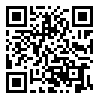BibTeX | RIS | EndNote | Medlars | ProCite | Reference Manager | RefWorks
Send citation to:
URL: http://hakim.tums.ac.ir/article-1-607-en.html
Haghdoost AA1 (MD, PhD), Sadeghirad B * 2 (PharmD), Shamsadini A3 (BSc), Nafisi Y4 (MD), Dehghani MR5 (MD), Ayatollahi Mousavi SA6 (PhD),
1 Physiology Research Center, Kerman University of Medical Sciences, Kerman, Iran
2 Neuroscience Research Centre (KNRC),
Kerman University of Medical Sciences, Kerman, Iran
3 Graduate Education Office, Vice chancellor of Education,
Kerman University of Medical Sciences, Kerman, Iran
4 Scholarship Office, Ministry of Health & Medical Education, Tehran, Iran
5 Education Development Center, Vice chancellor of Education,
Kerman University of Medical Sciences, Kerman, Iran
6 Medical Scholarship Office, Vice chancellor of Education,
Kerman University of Medical Sciences, Kerman, Iran
Received: 25 Oct 2009, Accepted: 21 Apr 2010
Abstract
Introduction: This study was designed to evaluate academic achievement and its indicators among Iranian postgraduate students who had been awarded governmental scholarship to continue their studies abroad in the field of medical sciences.
Methods: Self-administrative questionnaires were distributed among eligible ex-students who studied abroad between 1997 and 2003 and their supervisors, via email. Their lists and contacts were received formally from the ministry of health and medical education and were verified and updated by their sponsored universities in Iran.
Results: Overall, ex-students believed that they were successful however, they mentioned that their achievements would have increased if they had more experience in the beginning of their studies. Their supervisors mentioned that only 10% of their ex-students had capacities less than the average. The main achievement indicators were being updated about advances in their scientific fields, and obtaining information in relevant scientific fields. Regarding the most important factors in their successes, ex-students pointed to their personal determination and perseverance, and the scientific level of their departments and college. Supervisors believed that their Iranian students were ethical, intellectual and reliable, whilst they had weaknesses in English writing and reading skills, and leadership competence.
Conclusion: Although the students evaluated themselves successful and their supervisors almost agreed, but it seems that it is necessary to pay more attention to students’ English skills and research management to improve their academic achievement. Besides, evaluation of students’ progress and their academic achievement based on indicators that are more objective is recommended.
Key words: Educational Status, Fellowships and Scholarships, Academic Achievement Indices, Studying Abroad
Hakim Research Journal 2010 13(1): 1- 10.
* Corresponding Author: Neuroscience Research Centre (KNRC), Kerman University of Medical Sciences, Shariati St., Somayeh cross-road, Kerman, Iran. Tel: +98- 913-1967525, +98- 341- 3205611, Fax: +98- 341- 2113005,
Email: behnam.rad@gmail.com
Received: 2010/07/13 | Published: 2010/04/15
| Rights and permissions | |
 |
This work is licensed under a Creative Commons Attribution-NonCommercial 4.0 International License. |



